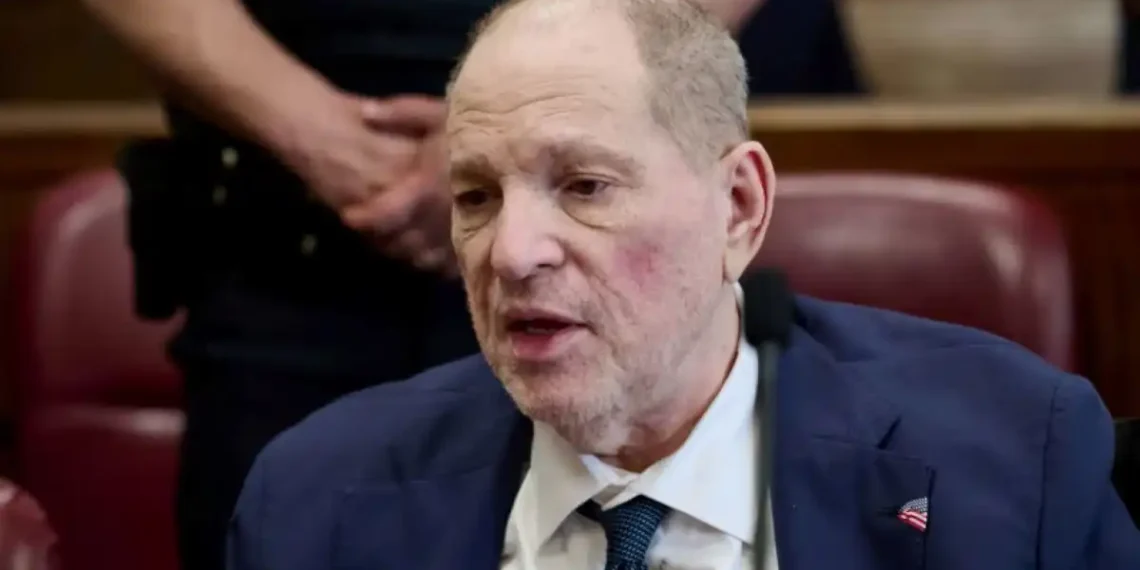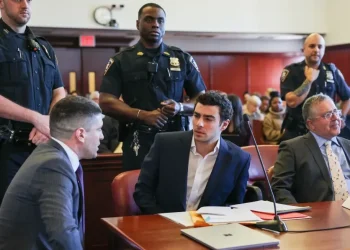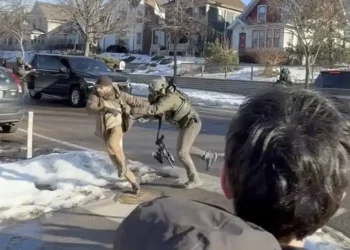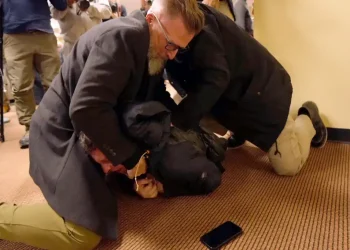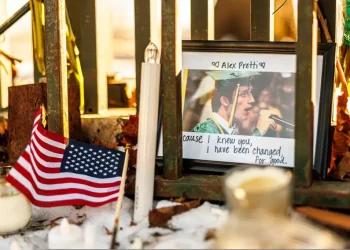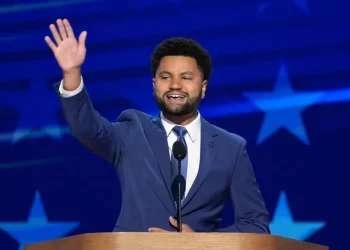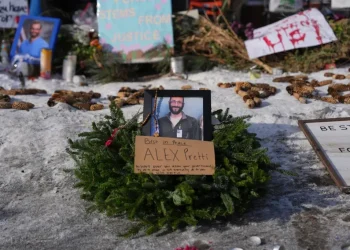Harvey Weinstein Convicted on Top Charge in Retrial of Landmark #MeToo Case
Harvey Weinstein, the disgraced former Hollywood mogul, was convicted on Wednesday of one of the most serious charges in his retrial for sexual crimes. The verdict, however, was split: while the jury found Weinstein guilty of forcibly committing a sex act against former production assistant Miriam Haley, they acquitted him of another criminal sex act charge involving former model Kaja Sokola. Additionally, jurors could not reach a decision on a third charge—rape—related to hairstylist and actor Jessica Mann.
A Split Verdict with a Heavy Impact
The partial verdict has brought a sense of vindication to Weinstein’s accusers and prosecutors, but also a form of relief for the defendant. While the case has been a major point of contention, Weinstein’s conviction on the charge involving Haley provides a crucial sense of justice for the victims of his alleged abuse.
The retrial, which took place in the same Manhattan courthouse as the original 2020 trial, had its fair share of drama. Weinstein himself became unusually vocal, requesting the judge to end the trial, claiming that his life was “on the line” and that the proceedings were “not fair.” The emotional outburst added to the tension surrounding the trial, as the jury faced challenges in reaching unanimous verdicts.
The Background: From Hollywood Titan to Criminal
Weinstein, once one of Hollywood’s most powerful figures, helped produce numerous Academy Award-winning films, including Shakespeare in Love and The English Patient. His fame was matched only by his deep ties to the Democratic Party, where he was a prominent donor. However, Weinstein’s empire began to crumble when in 2015, an Italian model accused him of groping her in his New York office. No charges were filed at the time, but the allegations were the beginning of a cascade of similar accusations.
In 2017, the floodgates opened, with The New York Times and The New Yorker publishing explosive reports on decades of sexual harassment and assault allegations against Weinstein. The #MeToo movement, which gained global momentum, was ignited by the courage of women who came forward to accuse powerful men like Weinstein. In 2020, Weinstein was convicted in New York on charges of criminal sex acts and rape, but that conviction was overturned in 2022 by New York’s highest court, setting the stage for this retrial.
The Retrial: A Legal Tug-of-War
This retrial wasn’t a simple replay of the first. Some of the additional accusers from the previous trial were excluded from testifying, but the case still took a dramatic turn with new allegations, including Sokola’s charge that Weinstein forced her into oral sex when she was 19. The tension in the courtroom was palpable, with many of Weinstein’s accusers giving intense, emotional testimonies. Sokola, visibly shaken, was confronted with passages from her private journal. Mann pointed at Weinstein in anger as she walked past him, while Haley cursed at him from the witness stand.
While the trial offered new layers of complexity, it also revealed how the women, all with connections to the entertainment industry, grappled with their experiences. They shared how Weinstein used his influence to lure them into situations where they were sexually assaulted—often after promising career opportunities. Yet, the accusers also testified that they struggled with their decisions to continue engaging with Weinstein, sometimes out of fear, career ambitions, or attempts to suppress the trauma for the sake of professional survival.
The Defense: A Different Narrative
Weinstein’s defense team attempted to paint a very different picture. They argued that the women involved were ambitious “wannabes” who willingly engaged with Weinstein in pursuit of opportunities. According to the defense, these women later recast consensual encounters as criminal acts in the hopes of securing settlement money or gaining validation through the #MeToo movement.
Throughout the trial, Weinstein chose not to testify, leaving his legal team to argue his case. His lawyers repeatedly insisted that the accusations were part of a broader narrative of women seeking personal gain after the fact.
Weinstein’s Legacy and the #MeToo Movement
The trial brought the spotlight back to Weinstein at a time when #MeToo is still very much a part of public discourse. His name is tied not only to some of Hollywood’s greatest cinematic achievements but also to one of the most significant social movements of the 21st century. #MeToo helped shift the conversation around sexual misconduct, holding powerful men accountable and giving a voice to those who had been silenced for years.
As this retrial continues, it’s clear that while Weinstein’s legal battles are far from over, the cultural and societal impact of his actions will resonate for a long time to come.
What’s Next?
Jurors are still deliberating the charge of rape involving Jessica Mann, which carries a lesser penalty than the other charges. Whether they will reach a verdict on that charge remains to be seen. As for Weinstein, who remains incarcerated, his legal team has indicated plans to appeal the conviction, making this saga far from over.
Ultimately, this case represents more than just one man’s downfall—it is a significant chapter in the ongoing effort to hold those in power accountable and to bring justice to victims of sexual violence.
This article was rewritten by JournosNews.com based on verified reporting from trusted sources. The content has been independently reviewed, fact-checked, and edited for accuracy, neutrality, tone, and global readability in accordance with Google News and AdSense standards.
All opinions, quotes, or statements from contributors, experts, or sourced organizations do not necessarily reflect the views of JournosNews.com. JournosNews.com maintains full editorial independence from any external funders, sponsors, or organizations.
Stay informed with JournosNews.com — your trusted source for verified global reporting and in-depth analysis. Follow us on Google News, BlueSky, and X for real-time updates.
